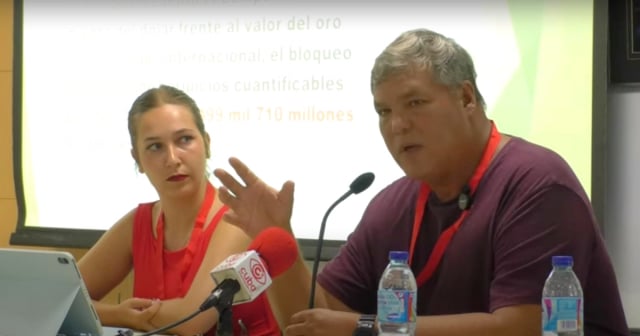The Prime Minister of Cuba, Manuel Marrero, announced this Thursday the future implementation of a higher electricity rate for the non-state sector, which is currently benefiting from the residential rate.
"Within the residential sector, non-state management forms have grown; many of them are high consumers and go through subsidized rates without a plan. We are working to find a solution to that," said the Cuban official.
The prime minister did not provide specific details about the "plan," but indicated that the new rate will be higher than the residential one and that the government hopes to implement it before the end of this year.
Marrero added that the plan will also require compliance with "energy efficiency" by private businesses.
In this regard, Alfredo López, director of the Unión Eléctrica (UNE), indicated that in the last year about 100,000 air conditioners have entered Cuba, which has obviously also driven up the demand for electricity. Some of those climate control units are destined for domestic use and others for private businesses.
He anticipated that we need to find a way for "each of the 'private' individuals who consume electricity to do so efficiently," and cited the example of setting limits on the temperature of air conditioners.
López and Marrero also referred to the "incentives" to acquire solar panels.
"It is necessary to increasingly encourage that anyone making investments has their own renewable energy system, with photovoltaic solar systems that allow electricity to be generated with panels, which is stored in batteries. It must be demanded," said Alfredo López.
At another time, the executive insisted that "exceptional measures must be taken from the perspective of the demand side and from the perspective of the consumption side."
Manuel Marrero and Alfredo López made such observations during an unusual television appearance focused on the "energy emergency."
Cuba reached its highest rate of power outages this Thursday so far this year.
The Electric Union reported this Friday that last night there were blackouts in the country amounting to 1,642 MW, a figure slightly below the 1,678 they had estimated, but still a record figure in the current energy crisis the country is experiencing.
The Cuban electrical system is in a critical state, with frequent outages of thermoelectric units due to either breakdowns or maintenance.
This situation is compounded by the shortage of fuel due to the state's lack of foreign currency to import it.
In an attempt to alleviate the crisis, the Cuban government has rented several floating power plants in recent years. While these provide a quick solution, they are expensive and do not address the structural problems of the national energy system.
The Electric Union of Cuba (UNE) issued a statement detailing the measures taken due to the energy emergency in which the country finds itself.
The measures, which come into effect this Friday, involve the suspension of non-essential services.
What do you think?
COMMENTFiled under:
